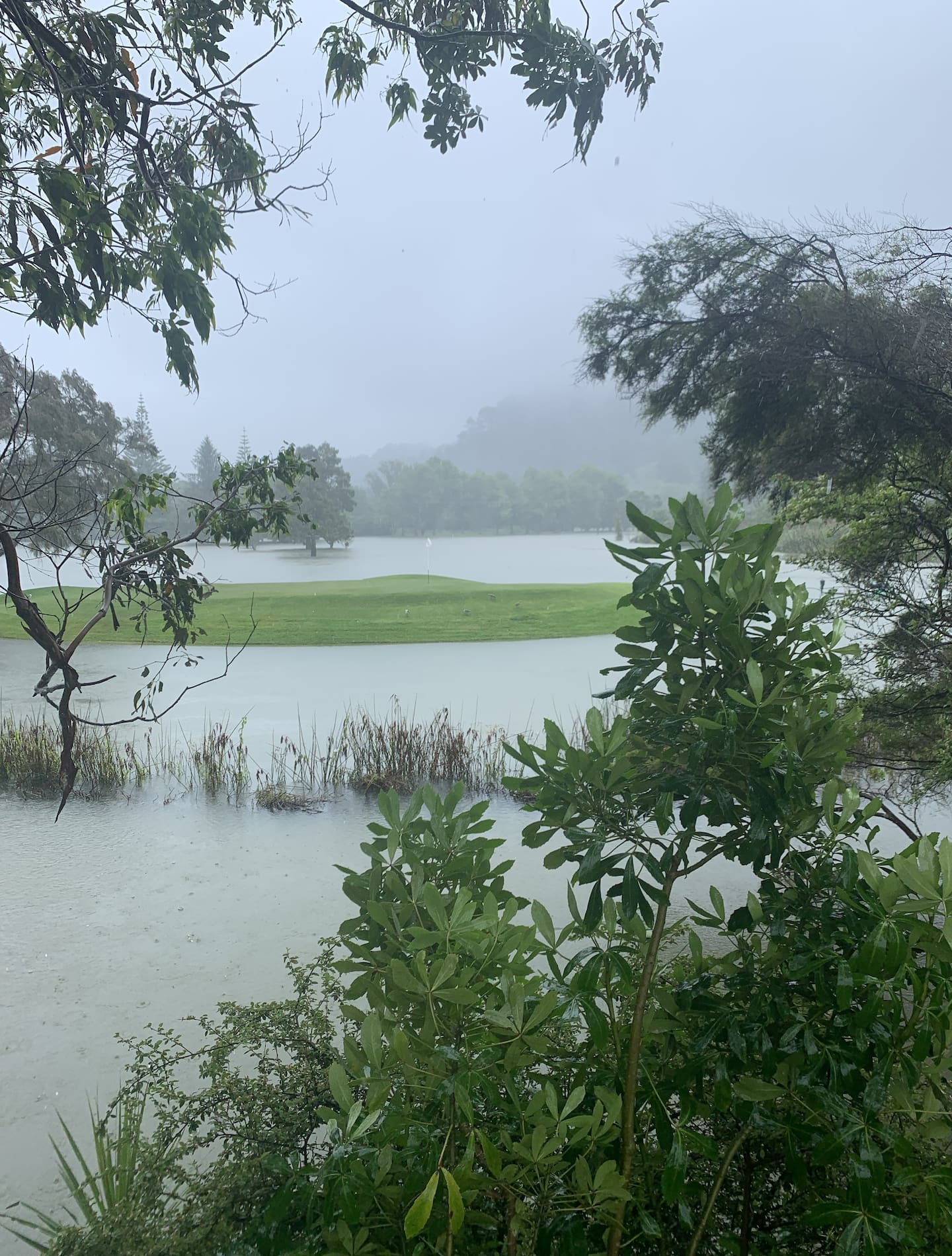
Whangamatā Golf Club lost about $400,000 as a result of the devastating weather events of last year, and course managers are now worried silt build-up and mangroves will make future flooding events worse.
The course lies adjacent to Moana Anu Anu estuary, and Whangamatā Golf Club chairman Andy Clements said silt and mangroves were acting like a “plug in the sink”.
He said those dual factors had affected water movement throughout the course, particularly in the past five to 10 years.
The club was forced to close for 105 days as a result of the devastating effects of Cyclone Gabrielle and other weather events that left the course saturated for months.
The club’s 875 members raised $165,000 last year and were hoping to raise another $100,000 this year to keep on top of the maintenance of pipework, drains and creeks, to help water flow away from the course.
Clements said the club had been reaching out to the Waikato Regional Council for years with concerns about environmental impacts from the estuary, and nearby public and private works, but to no avail.

Whangamatā Golf Club suffered significant flooding during Cyclone Gabrielle and was forced to close for three months.
A spokesperson for the council said it was contacted on March 18 by a member of the Whangamatā Golf Club, and a member of the council’s river management team responded on the same day with options for a way forward.
“Part of our advice was that given the proposed work and working within the Coastal Marine Area, the most likely course was a resource consent application.
“Advice was provided on the process. We welcome further queries and are available to help with providing guidance through the process.
“By way of background, the golf course is in a floodplain and subject to flooding during weather events, of which Whangamatā and the Coromandel have had many over the last five to 10 years.”
The spokesperson said historical flood modelling work had looked at the catchment and flood impacts.
“The causeway, and now the marina, both form a bottleneck in the catchment restricting flow during rainfall events.”
Clements said club members were “not water experts”, but the potential for flooding was getting worse.
He pointed back in the direction of the Harry Watt Dr-Hethrington Rd causeway over the Wentworth River as a key cause of concern.
Clements said the basin was a low point for run-off where there was a significant build-up of sediment and an expanding population of mangroves.
He said human development in the higher reaches of the valley also presented challenges, as an increasing amount of sediment was making its way downhill.
“The river is up in places with sediment being deposited, which reduces flow; we aren’t allowed to touch it.”
The club had been directed not to touch it by the regional council, he said.
“The council takes no responsibility, yet it [sediment] comes from the valley and off the hills; they say they have no responsibility.”
As concerns grew about rising silt and expanding mangroves in the estuary, the potential costs would increase, he said.
“We can’t afford to sort out the estuary.
“One low tide doesn’t get rid of the silt; it’s like a cancer.”
Meanwhile, the club was spending $70,000 to clear creeks, drains and pipeworks on the course.
“It’s stuff we have to maintain,” Clements said.
Whangamatā Golf Club is registered as a charitable club. To assist with clearing creeks, drains and pipeworks, it was holding a fundraising raffle to be drawn on April 19.
Anyone keen to get involved is encouraged to go to wgcmasters.net
This story was originally published on the Herald, here
Take your Radio, Podcasts and Music with you









